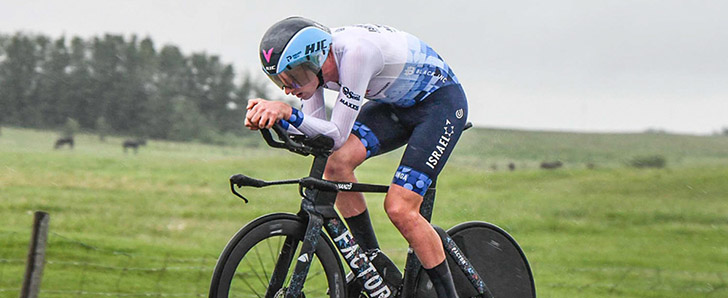September 4/14 10:36 am - No Positives Found at 2014 Tour de France
Posted by Editoress on 09/4/14
The Cycling Anti-Doping Foundation (CADF), responsible for conducting the 2014 Tour de France anti-doping testing programme on behalf of the Union Cycliste Internationale (UCI), has announced that all anti-doping test results have been delivered and that no Adverse Analytical Findings have been recorded.
The CADF collected 719 blood and urine samples at this year's Tour (compared to 622 samples in 2013). Of these samples, 197 were collected pre-competition for the purposes of the Athlete Biological Passport and the medical monitoring, and a further 522 during the race.
CADF Director Francesca Rossi said: "At this year's Tour de France, 522 samples were taken during the race, of which 320 were for the purposes of the Athlete Biological Passport (compared to 198 samples in 2013). In addition our strategy of targeted testing was reinforced this year following information received from numerous different sources."
"Once again the collaboration with the French Anti-Doping Agency (AFLD) was excellent. The anti-doping target testing strategy was discussed daily, taking into account the performances of the riders and other data. We also had a valuable contribution from UK Anti-Doping before the start and during all stages in England."
"This year's Tour was also the first time, in addition to the pre-competition testing, that we organised a second large-scale unannounced mission where all the riders were simultaneously tested for the Athlete Biological Passport during a rest day in Carcassonne. This was made possible thanks to the logistical support of the AFLD," concluded Dr Rossi.
UCI President Brian Cookson declared: "I would like to thank the anti-doping bodies involved in the 2014 Tour de France operations for their collaboration, in particular the French Anti-Doping Agency and UK Anti-Doping, but also the World Anti-Doping Agency and the CADF. This sort of collaboration is absolutely necessary: thanks to a sharing of information, the effectiveness of the testing distribution and therefore the overall anti-doping programme is improved, with the stakeholders sharing their knowledge, their know-how and the information they have available. In addition, it increases the programme's transparency while obviously respecting the confidentiality regulations in force."
UK Anti-Doping Chief Executive Andy Parkinson added: "UKAD works closely with our global partners to provide robust and comprehensive anti-doping programmes in our country."
"The UCI/CADF took a proactive approach in running an intelligence-led anti-doping programme at this year's Tour de France and, as with any such operation, UKAD was able to share appropriate information and expertise. Collaborative approaches represent the future of anti-doping."
All samples collected at this year's Tour were analysed systematically for Erytropoyesis Stimulating Agents (ESA). A number of samples were also analysed using isotope ratio mass spectrometry (IRMS), notably to detect the abuse of testosterone and its precursors.
All the samples collected on the Tour de France 2014 were analysed in France, at the WADA-accredited laboratory of Châtenay-Malabry, using the most up-to-date techniques. The laboratory in Lausanne was involved in the pre-competition mission and also served as a back-up laboratory during the Tour itself.
The UCI, CADF and AFLD have agreed to store the samples collected for possible retrospective analysis in the future.
About the CADF:
The Cycling Anti-Doping Foundation (CADF) is a non-profit foundation under Swiss law whose role is to manage, as described hereunder, the anti-doping programme of the Union Cycliste Internationale (UCI) for all riders of all disciplines. The CADF's activities are conducted in compliance with the UCI Anti-Doping Rules and the World Anti-Doping Code.
CADF's responsibilities are to:
• Define and implement the doping control strategy on behalf of the UCI;
• Conduct a comprehensive in- and out-of-competition testing programme to detect prohibited substances and methods;
• Manage and constantly improve the biological passport programme;
• Provide administrative and scientific support to the UCI Legal Anti-Doping Services (LADS);
• Provide administrative support to the UCI Doctor/Scientific Adviser for the TUE management;
• Train Doping Control Officers (DCO);
• Teach riders and teams how to use the different existing on-line platforms, whether they be tools such as ADAMS or education programmes such as "True Champion or Cheat?";
• Upon request, have a consultative role for research, education and prevention.
www.cadf.ch
Report courtesy UCI
| Return to Canadian Cyclist homepage | Back to Top |





